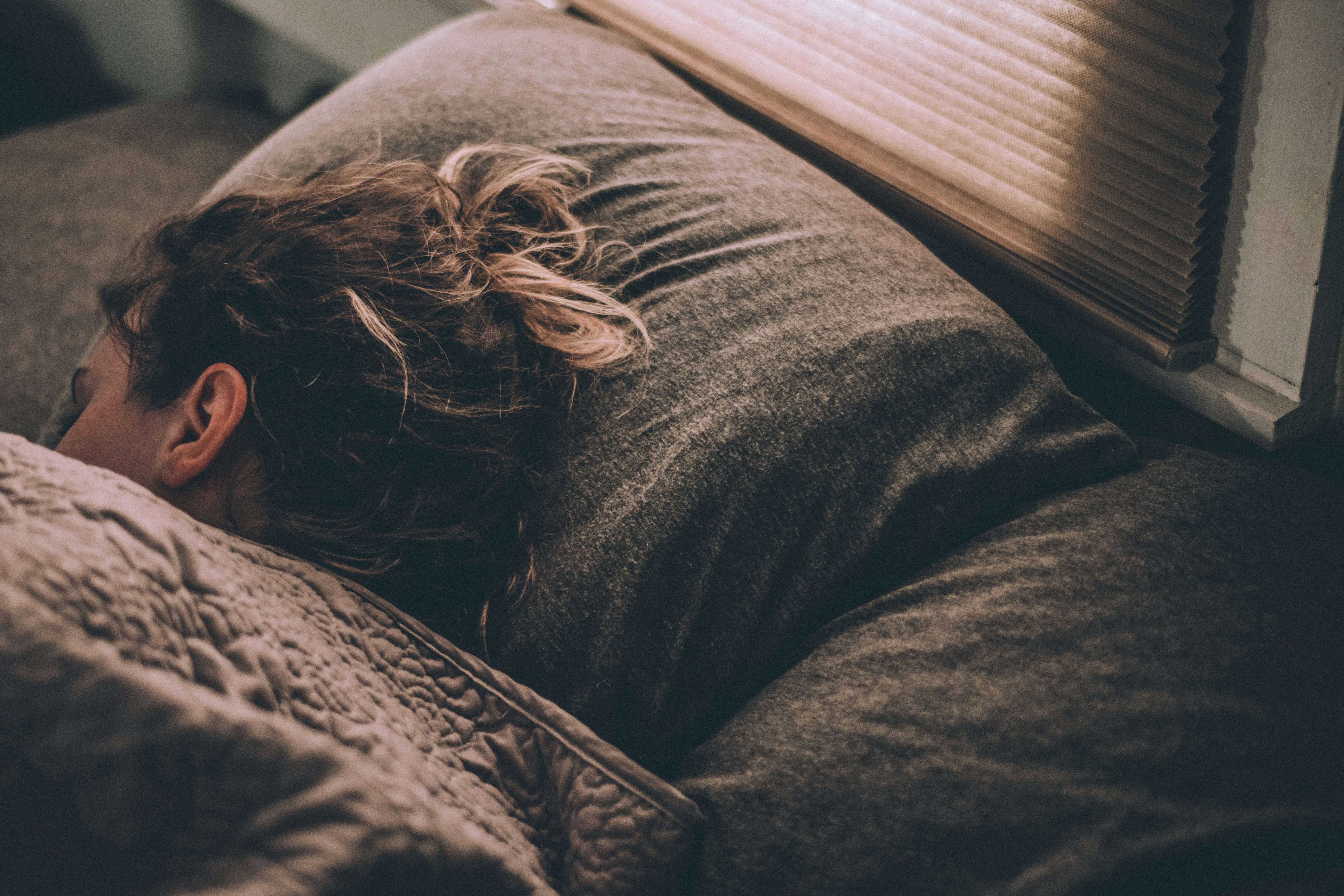10 Herbs to Improve Your Sleep
In today's fast-paced world, achieving quality sleep can feel like an elusive dream for many. While there are various sleep aids available, turning to nature's remedies can offer gentle yet effective support for a restful night's sleep. Among nature's gifts are herbs, which have been used for centuries in traditional medicine systems to promote relaxation and improve sleep quality. In this blog post, we'll explore ten scientifically-backed herbs that can help you drift off into a peaceful slumber.

- Valerian Root (Valeriana officinalis):
Valerian root is perhaps one of the most well-known herbal remedies for sleep disorders. It contains compounds like valerenic acid and valeranon, which exert sedative and anxiolytic effects by modulating neurotransmitters such as gamma-aminobutyric acid (GABA). Several studies have demonstrated valerian root's efficacy in improving sleep quality and reducing the time it takes to fall asleep. (1) - Chamomile (Matricaria chamomilla):
Chamomile is a gentle herb known for its calming properties. It contains apigenin, an antioxidant compound that binds to benzodiazepine receptors in the brain, exerting anxiolytic and sedative effects. Chamomile tea is a popular bedtime beverage, revered for its ability to promote relaxation and alleviate insomnia symptoms. (2) - Lavender (Lavandula angustifolia):
Lavender is celebrated for its soothing aroma, which has been shown to have a profound impact on sleep quality. Inhalation of lavender essential oil or use of lavender-scented products has been associated with improved sleep duration, reduced wakefulness during sleep, and enhanced overall sleep satisfaction. (3) - Passionflower (Passiflora incarnata):
Passionflower is a vine native to the Americas, valued for its anxiolytic and sedative properties. Studies suggest that passionflower extract can help improve sleep quality and reduce sleep disturbances, making it a promising option for those struggling with insomnia or restless sleep. (4) - Lemon Balm (Melissa officinalis):
Lemon balm is a member of the mint family and is prized for its calming effects on the nervous system. Its mild sedative properties can help reduce anxiety and promote relaxation, making it beneficial for individuals experiencing sleep difficulties due to stress or nervousness. Lemon balm tea is a popular herbal remedy for inducing sleep. (5) - Ashwagandha (Withania somnifera):
Ashwagandha, also known as Indian ginseng or winter cherry, is an adaptogenic herb with a wide range of health benefits. Among its many virtues, ashwagandha is known to alleviate stress and anxiety, which are common contributors to sleep disturbances. By reducing cortisol levels and promoting relaxation, ashwagandha may help improve sleep quality and duration. (6) - Magnolia Bark (Magnolia officinalis):
Magnolia bark contains bioactive compounds such as honokiol and magnolol, which possess anxiolytic and sedative properties. Research suggests that magnolia bark extract can help improve sleep quality, reduce the time it takes to fall asleep, and enhance overall sleep efficiency. Additionally, magnolia bark may exert its sleep-promoting effects without causing daytime drowsiness. (7) - Holy Basil (Ocimum sanctum):
Holy basil, also known as tulsi, is revered in Ayurvedic medicine for its adaptogenic and stress-relieving properties. By modulating the release of stress hormones like cortisol, holy basil can help promote relaxation and improve sleep quality. Consuming holy basil tea or supplementing with holy basil extract may support better sleep outcomes. (8) - California Poppy (Eschscholzia californica):
California poppy is a gentle sedative herb native to North America. It contains alkaloids like californidine and protopine, which exert mild sedative effects on the central nervous system. California poppy may help alleviate insomnia symptoms and promote a sense of calmness and relaxation conducive to sleep. (9) - Hops (Humulus lupulus):
Hops, the flowers of the hop plant, are not only a key ingredient in beer but also a potent herbal remedy for sleep disorders. Hops contain compounds like prenylated flavonoids and xanthohumol, which possess sedative and hypnotic properties. Incorporating hops into herbal teas or supplements may help improve sleep quality and duration. (10)Nature has provided us with an array of herbal remedies that can offer gentle yet effective support for achieving restful sleep. From valerian root to chamomile, lavender to passionflower, these herbs have been revered for centuries for their calming and sleep-promoting properties. Whether consumed as teas, tinctures, or supplements, incorporating these herbs into your bedtime routine may help you drift off into a peaceful slumber and wake up feeling refreshed and rejuvenated.
To embark on your path to wellness with Dr. Jen Hardie, ND, please click here. We look forward to assisting you in your health journey.
In Health,
Dr. Jen Hardie
Naturopathic Doctor[Disclaimer: The information provided in this blog post is for educational purposes only and should not be construed as medical advice. Consult with a qualified healthcare professional before making any changes to your health regimen.]
References:
1. https://www.ncbi.nlm.nih.gov/pmc/articles/PMC4394901/
2. https://www.ncbi.nlm.nih.gov/pmc/articles/PMC2995283/
3. https://www.ncbi.nlm.nih.gov/pmc/articles/PMC3612440/
4.https://www.ncbi.nlm.nih.gov/pmc/articles/PMC7387951/
5. https://www.ncbi.nlm.nih.gov/pmc/articles/PMC4245564/
6. https://www.ncbi.nlm.nih.gov/pmc/articles/PMC3573577/
7. https://www.ncbi.nlm.nih.gov/pmc/articles/PMC5331560/
8. https://www.ncbi.nlm.nih.gov/pmc/articles/PMC5376420/
9. https://www.ncbi.nlm.nih.gov/pmc/articles/PMC7914492/
10. https://www.ncbi.nlm.nih.gov/pmc/articles/PMC7591795/
